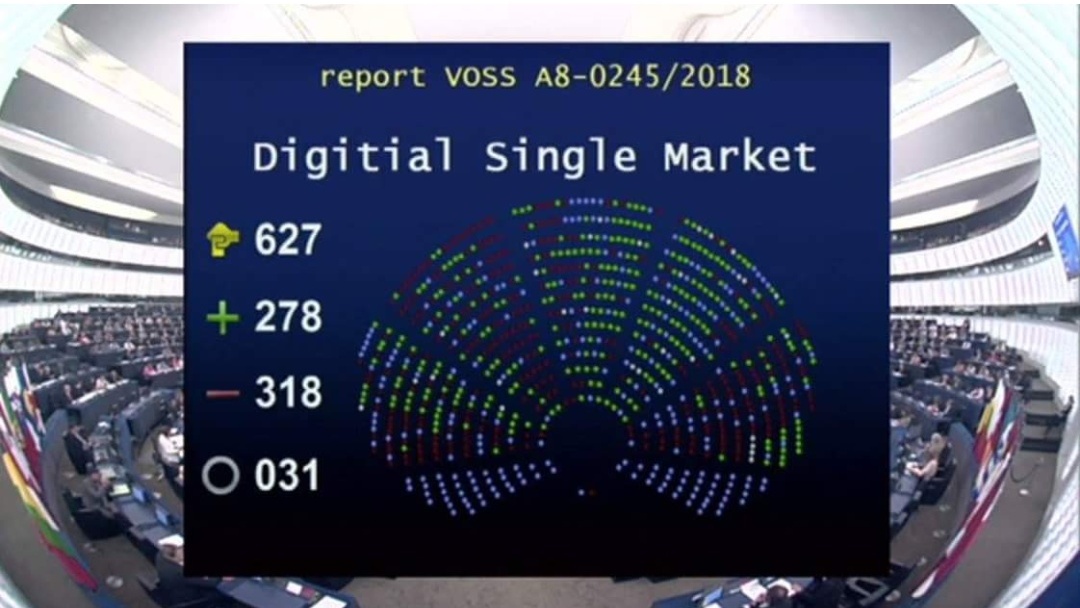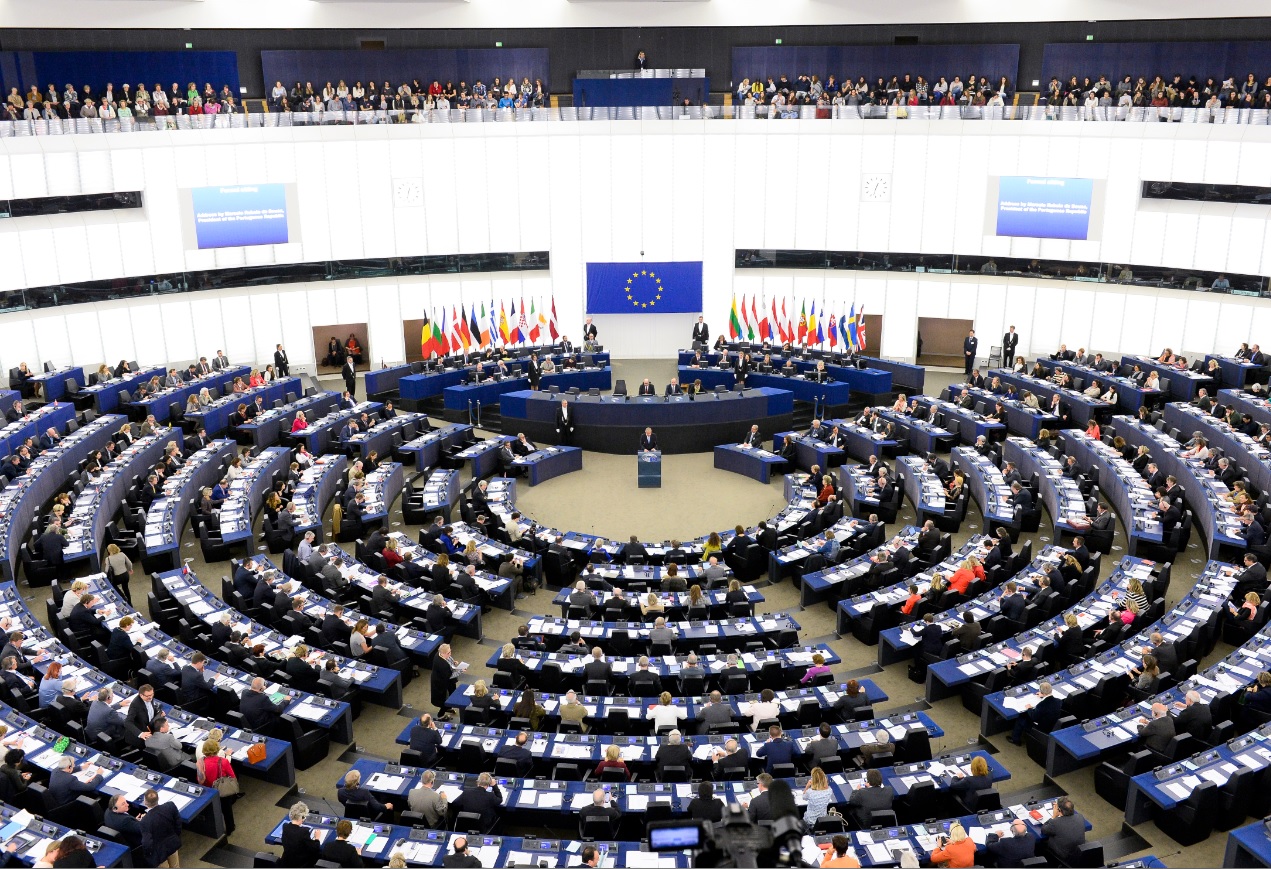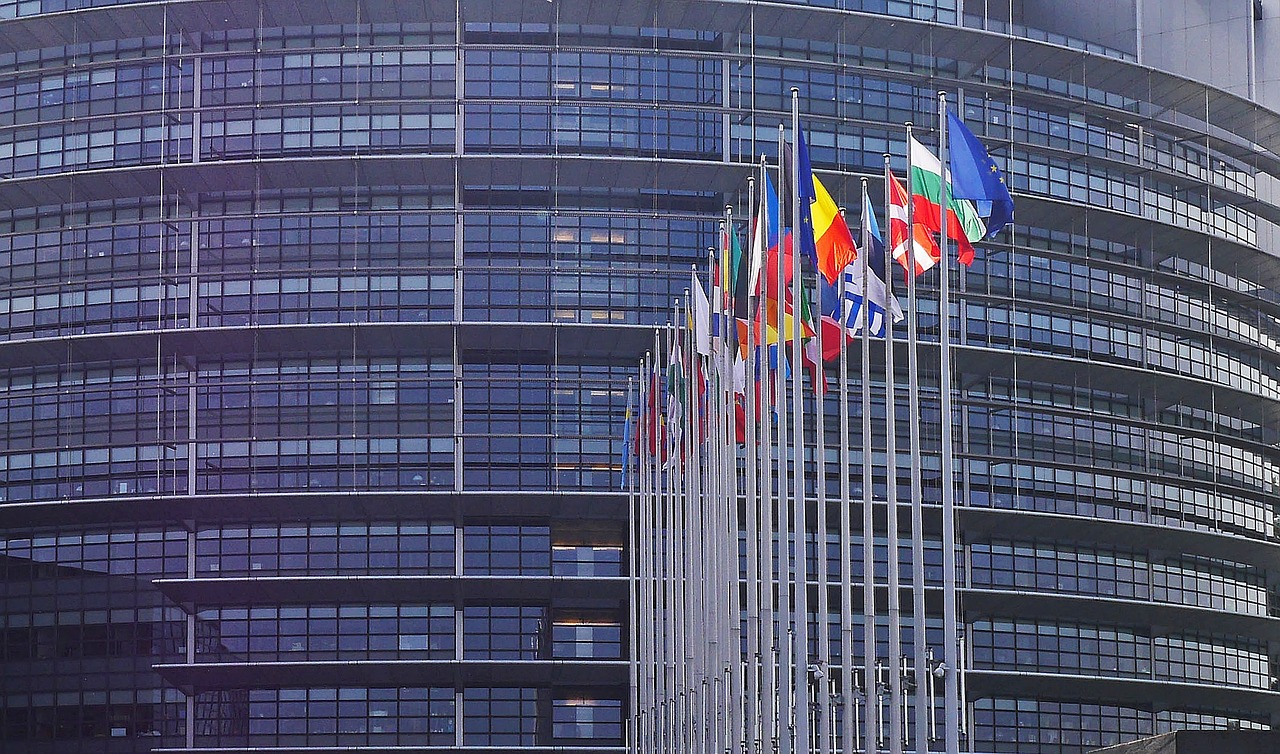Three important studies examine the threats to free, impartial and transparent elections
The UK Information Commissioner’s Office (ICO) published today three new studies regarding personal data analysis for the promotion of political campaigns.
The first report is entitled “Democracy Disrupted? Personal information and political influence”. The objective of the study is to shred light on the use of personal data in the context of political campaigns. Moreover, this report includes ten (10) proposals for the legal and transparent use of personal data during political campaigns by political parties of the UK in the future.
The second report is entitled “Investigation into data analytics for political purposes – update”. The objective of the study is to inform the public on the new findings of the Authority in the context of its investigation, initiated on May 2017, regarding the processing of personal data in political campaigns. This investigation was launched subsequently to claims for secret processing of voters’ personal data and use of targeted political advertisements during the referendum on Brexit.
Furthermore, the report includes an analytical reflection on the recent regulatory acts of the UK regarding companies involved (Facebook, Cambridge Analytica, etc.), political parties, data brokers, organizations supporting political campaigns, etc. It is for sure that one of the latest acts of the Authority, which has caught the attention of the press, is the notice to Facebook, with which it informs the company of its intention to issue a fine of 500,000 pounds against it (around 565,000 Euro) for the violation of the Data Protection Act of 1998. It must be underlined that this fine was the maximum, which could be issued according to the then legislation.
The third report was concluded in cooperation with the investigation team DEMOS and is entitled “DEMOS report – The future of political campaigning”. This study analyzes the modern and future trends regarding the way in which various data are used during political campaigns.
Furthermore, the report describes the methods, which are widely known in the online advertising sector, and the way in which these methods are already being used or might be used in the near future for political campaigns. Finally, it mentions the risks and challenges which stem from data analysis for political campaigns.
EU: Freedom of online expression was saved!
The European Parliament rejected the Proposal for a Directive on Copyright in the Digital Single Market
5 July 2018 is a fantastic day for freedom of online expression and information.
Today, the European Parliament rejected the Proposal for a Directive on Copyright in the Digital Single Market with 318 against, 278 in favour and 31 abstentions.
As analyzed by Homo Digitalis, the dangers which could stem from this Directive were significant.
Consequently, the negative vote of the Proposal is a tremendous victory for freedom of online expression and information. The Internet is fortunately not going to change!
According to the legislative procedure, the Proposal for the Directive will return to the Legal Affairs Committee of the European Parliament, which will suggest amendments and will introduce the new Proposal to be voted in the plenary of the Parliament in September.
Homo Digitalis will keep informing you on any updates.
Today is a day of joy for all European citizens, who use the Internet.
For us, the joy is double, because part of this result is your accomplishment.
We would like to thank you all for embracing the endeavour of Homo Digitalis for the rejection of the Proposal, through the pressure put on the Greek Members of the Parliament through emails.
Let us not forget the words of the famous writer Helen Keller: “Alone we can do so little. Together we can do so much.”
We will all together keep fighting for our digital rights.
Thank you.
FRA published today the summary of his second report on surveillance by the intelligence services in Greek
The European Union Agency for Fundamental Rights (FRA) published its second report on the protection of fundamental rights in the context of surveillance by national intelligence services in October 2017. The title of the report in Greek is «Παρακολούθηση από τις υπηρεσίες πληροφοριών: εγγυήσεις και μέσα έννομης προστασίας των θεμελιωδών δικαιωμάτων στην Ευρωπαϊκή Ένωση – Τόμος ΙΙ».
For those who are not familiar with its work, FRA was established with the objective of offering independent and well-documented assistance and experts’ advice regarding fundamental rights in the institutions of the EU Member States. It is an independent EU institution, funded by the EU budget.
Considering the growing threats of terrorism, the cyber-attacks and the sophisticated transboundary criminal networks, the scope of the intelligence services has become more emergent, complex and international and the services may interfere gravely with fundamental rights.
The report of October 2017 is the second report published by FRA, subsequently to the request by the European Parliament for a thorough examination of the consequences of surveillance on fundamental rights. It is a continuation of the first report by FRA, published in 2015. This first report examined the legal frameworks on surveillance in the 28 EU Member States and analyzed them through the perspective of fundamental rights. In this way, the first report by FRA presented a comparative analysis of the legal framework on surveillance in the whole of the EU. The Greek summary of the first report is available here.
The second report is an updated version of the 2015 legal analysis, which also includes long interviews with various experts of certain EU Member States. It also includes 16 FRA opinions, which are based on the main findings of the report.Today, the Greek version of the summary of the second report was published on FRA’s website and is available here. It is worth noting that the Greek version of the summary is one of the first available translations in official EU languages.
Freedom of online expression and freedom of information need you!
You use the Internet on a daily basis to communicate, to get informed and have fun. But Internet as you know it might cease to exist, if you do not take immediate action.
What happened?
On June 20, 2018 the Legal Affairs Committee of the European Parliament voted in favour of the Proposal for the Directive on Copyright in the Digital Single Market.
The proposed Directive aims to harmonize the legal provisions in the Member States regarding copyrights, taking particularly into account the digital and cross-border uses of the protected content. In simple words, what the european legislator aspires to achieve is that all EU Member States are on the same page regarding copyrights in the contemporary digital single market. Everything seems fine up to here.
Nonetheless, the provisions of the proposed Directive and especially Article 13 are not safe from blunders and could jeopardize freedom of online expression and freedom of information.
Article 13 requires that Internet platforms use filters for any information uploaded by the users on the platform, in order to avoid copyright infringements.
What does this mean?
Content-recognition technologies will filter the posts of the Internet users to ascertain whether there has been a copyright violation in the content of the posts under question. Subsequently, based on the said filtering, the posts will be approved or prohibited. The risks from such a practice for freedom of online expression and information are obvious.
1. The Internet platforms will have excessive power
Under the new scheme platforms will have to filter the content, which they host, without any complaint regarding a copyright violation. Until now, legislation provided that content which violates copyright would get banned from the platform according to a procedure. This procedure commenced subsequently to a complaint filed by the alleged copyright owner. Now, any post will be subject to this filtering.
2. The available technology is not able to recognize posts which are made in the context of parody, criticism or reference for research and commentary
Although technology evolves rapidly, the available filtering mechanisms are not able to recognize the difference between legal and illegal content use, which is subject to copyrights, and which is used in research, commentary, even for criticism or parody (i.e. reference to artistic excerpts for commentary, reproduction of speeches for informing the public for current affairs, generation of parodies of a film -such as memes- or parodies of songs.
Therefore, the creativity of Internet users and freedom of online expression and information will be inevitably restricted. Additionally, the said filtering mechanisms will have to be supported by a whole army of employees of the Internet platform in question. These employees will proceed to a second phase of monitoring of all the posts for which the filtering mechanisms will have concluded that they infringe copyrights.
This is definitely a costly and time-consuming procedure and the extra cost for the extra employees might fall on the Internet user through a rise on the prices for Internet services or the introduction of annual or monthly fees in the various Internet platforms.
What can I do to prevent this?
On July 5 the European Parliament’s plenary will vote on the proposed Directive. Send today and email to the Greek Members of the European Parliament (MEPs) and call them to vote against the proposed Directive on Copyright in the Digital Single Market.
A full list with the contact information of all the Greek MEPs can be found here.
Remember that every email counts. We must unite our voices and request all together from the Greek MEPs to vote against the proposed Directive. The preservation of freedom of online expression and information concerns us all and is a vital prerequisite for the proper functioning of democracy.
If you want to save time, you can use the following template. However, we suggest that you personalize your message as much as possible and express also your own concerns.
“ Subject: Vote against the proposed Directive on Copyright in the Digital Single Market
Dear Ms/Mr (Name),
I am sending this message because on July 5, the European Parliament plenary will vote on the proposed Directive on Copyright in the Digital Single Market.
This act will drastically change the form of the Internet, as we know it, for the worse. It will restrict significantly the right to freedom of online expression and information for all Greek and European Internet users.
More specifically;
Creativity and freedom of speech will be significantly damaged, since algorithms are not always able to recognize the difference between legal and illegal use of content, which is subject to copyrights, and which is used in research, commentary, even for criticism or parody. If the use of this content is regulated by automated systems, which take decisions the letter and not the spirit of law, creativity and freedom of online speech, will be inevitably restricted.
There are no appropriate technical means to implement Article 13. There is no recognition technology, which can monitor successfully all the forms of content which are included in the proposed Directive (text, audio, video, images and software).
Therefore, it is absurd to expect from the courts of the 27 Member-States to constantly judge on which would be the most appropriate technical means for the implementation of the proposed Directive on a case by case basis.
The Internet service providers should not become responsible for the implementation of the copyright legislation, as prescribed by Article 13. In order to achieve their compliance and avoid fines and sanctions, the companies will prefer to become overprotective in regards to copyright, thus restricting freedom of expression.
Providing the companies with the right to delete content for copyright violations will give them excessive power, since there is no provision for the protection of Internet users against such deletions -even if their content is legal.
Taking into account all the above, I call you to vote against the proposed Directive. In this way, the text of the proposal will become subject to review, in order for the requisite balance between copyright protection and protection of freedom of online expression and information to be found.
With best regards,
(Name) “
Homo Digitalis sends an e-mail to the Greek members of the European Parliament
On the 20th of June 2018 the Legal Affairs Committee of the European Parliament voted in favour of the adoption of the Proposal for a Directive on Copyright in the digital single market.
The provisions of this proposed Directive, and more specifically the Article 13 that it includes, could be proven hazardous. The aforementioned legislation will change the Internet as we know it, only for the worse, setting serious limitations to freedom of expression and information of Greek people as well as all the internet users inside the European Union.
Before the voting process of this proposed directive, Homo Digitalis had contacted Mr. Chrysogonos, the only Greek representative in the Legal Affairs Committee, suggesting that he should examine in detail the Article 13 of the Directive. Mr. Chrysogonos proposed its amendment during the voting session. Unfortunately, his proposal was denied and the text was adopted from the Legal Affairs Committee. Read more about this here.
On the 5th of July the plenary of the European Parliament will be called to vote on this proposed Directive. If the voting goes through and in favour of this Directive, it will soon become a reality.
Thus, the last chance of reviewing this text, in order to ensure the required balance between the protection of copyrights and freedom of expression and information on the internet, is now.
Homo Digitalis noticed via e-mail all the Greek members of the EU Parliament to vote against this directive. See the e-mail in Greek here.
European citizens must act now and request from the Members of the European Parliament of their countries to vote against this proposed Directive on the 5th of July and protect the freedom of expression and information. Only if we unite our forces we will be able to send a loud and clear message.
Every e-mail to the Members of the Parliament is of utmost importance. Take action!
Social Media
By Emmanouil Mandrakis*
Following the Cambridge Analytica scandal, most social media users, particularly Facebook users, are concerned for the protection of their personal data. Notably, many decided to delete their profiles, either driven by fear or by a need for reaction. A considerable amount of users seem to be indifferent for the violation of their privacy or are not aware of what is happening.
In any case, social media have proven to be useful when it comes to networking and communication. For their users to be able to enjoy these services, without facing the pertinent dangers, they must always get informed. On the other hand, social media and their access in private life must be regulated and monitored.
What happened with the Cambridge Analytica scandal
The Cambridge Analytica scandal came to light when it was disclosed that the personal data of millions of Facebook users were used for political propaganda by the social media company. It is estimated that between 2014 and today (2018), Facebook has gathered personal information by 87 millions users. It has been claimed that this information has been used on a fee for influencing the public opinion in political issues. The users did not know if and how their data were used, while most of them never granted their consent. (Kevin Roose, 2018)
This came out by a Cambridge Analytica employee, who denounced the abuse of the data. The case has been brought to justice. At this point, arises the issue of whether the law has made provision for protecting the users and preventing corporations from violating the Internet users’ privacy. Moreover, the social media users must get informed and learn which conduct might lead them to confronting similar dangers.
Facebook as an entity offered the means for the development of applications for entertainment, briefing and various others objectives, which had access to personal data, in order to be more efficient. Applications such as quizzes requested access to data, which were not actually necessary for the quiz, such as personal data of the users’ friends. In this way, these applications gained access to data of people, who never consented, just because their friends were “careless”.
Can someone get protected?
Social media users must always get informed on how they can get protected. They must be cautious regarding the information they share, particularly when they share sensitive data or even their “digital self”. To begin with, they must be aware that if they decide to share information publicly, this information will be available to everyone.
This includes corporations, which might use this data for some objective, if not for profit. For instance, for most users, the profile photo is public and clearly depicts their face. This gives the opportunity to everyone to create a huge database with name, surname and biometric characteristics for face-recognition applications. The “Likes” made by the users in pages and posts provide sufficient information for someone that has access to them to know the users’ preferences and desires.
Apart from the obvious use for marketing purposes, it must not be underestimated that the social circle of a person might criticize it based on its “likes”, something that leaves considerable ground for stereotype-making. In the following table are illustrated the steps, that anyone can follow to protect this information.
Furthermore, social media users can control with who they share other sensitive information such as posts and location. Notably, the latter is used by insurance companies in order to avoid compensations for burglaries. (Pleasance, 2015) Therefore, users must post responsibly, particularly when they choose their post to be public.
The commodities of social media
Social media have undoubtedly earned their role in everyday life. They have brought communication and networking to a new dimension, in which a person can keep in touch with another from a long distance or remain in contact with its old schoolmates much more easily than in the past. As far as corporations are concerned, it has made product promotion easier and much more targeted.
This is not necessarily negative; we should bear in mind that the marketing cost is paid by the consumer in any case. Social media constitute a source of information but also misinformation. One must always crosscheck his sources. Social media are a commodity which is taken for granted and is offered for free, with the only price paid being the users’ personal data.
Consequently, users must always check what they pay each time for the services they enjoy and decide if it is worth it. They must be hesitant when an application requests access to irrelevant information. It is normal for a weather application to ask for the user’s location, but not for access to photos or “likes”.
* Emmanouil Mandrakis is an Electrical and Computers Engineer, specializing in Nanotechnology. He works in CSEM (Swiss Center for Electronics and Microtechnology) in Switzerland. He is interested in current affairs and credible information. He works on new technologies issues.
Digital Single Market and Geography: Towards the Abolition of Geo-Blocking
By Stefanos Vitoratos
“Twenty-five years after the establishment of the European single market, European consumers earn their place in it.” The Regulation 2018/302 of 28 February 2018 against the “territorial exclusion” on E-commerce and services (or «geo-blocking» as it is commonly known) is here and aims to tackle discrimination in access to goods and services by putting an end to regulatory asymmetries between member countries.
The new regulation significantly reduces several often restrictions and in these terms is one of the major steps towards a true single market for consumers. However, this arrangement could be seen as fragmentary, since restrictions are not completely eliminated.
What is Geo-Blocking?
But let’s take them in turn: What do we mean by “Geo-blocking”?
It is a form of technological protectionism that restricts access to web content based on the user’s geographic location. The exact location of the user is detected using geolocation techniques, such as checking the IP address, thus allowing the system to approve or deny access to specific content.
Geo-blocking is mainly associated with restrictions on access to multimedia content such as movies, TV shows or even songs due to intellectual property and licensing purposes. How many of you have not gotten the message “This content is not available in your country”? But this is only a certain aspect of it, since geo-blocking is even used for price discrimination in online stores. There are phenomena, where users buy online products from foreign sites at much higher prices than domestic users of the same sites. It is even likely that the site accepts a bank card only from its home country or even redirects you to an online store in your own country.
Why is it an important step?
As early as May 6, 2015, the European Union announced the adoption the “digital single market” strategy . The rationale was that many Europeans are still not able to use online services that are available in other EU countries without any explanation, or perhaps, speaking of trade, they could be transported to a domestic website with different prices. These phenomena are not in line with the idea of a single market.
From the above mentioned, we understand that the idea is simple: the consumer has access to the same prices in all products in all countries without any geographic distinction for commercial purposes. There are neither restrictions depending on nationality or permanent residence, nor does it mean to impose different pricing depending on the country of origin of the user.
The idea is correct, however the final text of the Regulation, tackles only three very specific geo-blocking cases, and more specifically:
i) Digital services, such as cloud and web-hosting, which must be accessible to customers from all over Europe.
(ii) Services provided in a particular physical location, such as car rental, which must be available to everyone regardless of location.
(iii) The sale of goods, irrespective of the Member State from which the user accesses the site.
What is left to be done?
However, as you may observe, digital services that include copyright are excluded.
Restrictions regarding digital media are not included in this round of “construction” of the EU’s single digital market and this is due to the intense pressure from the industry of intellectual property rights and the respective protective behavior of many national governments. Products such as movies, series, e-books, video games and music were excluded from the scope of the regulation. What does this mean practically? That a Belgian site subscriber providing series and movies may have different access to content from the respective Greek user of the same site. This deduction from the scope of the Regulation allows suppliers to continue excluding geographically the electronic services that contain copyrighted content.
The consolation is that the legislator agreed on a “review clause” of this issue in two-years time, that is the end of 2020. Until then, the new political circumstances that will have been formed, since a new European Parliament and a new European Commission will have taken up duties, might be able to break the resistance of industry.
Undoubtedly, this regulation, which will come into effect from December 3rd, 2018, is perhaps one of the most important steps towards a true single market for consumers. Thus, It will add to other achievements from 2017, such as the termination of roaming charges for mobile phones and cross-border portability for online subscriptions.
The EU has been working for a long time in the direction of the digital single market, promoting equality, pluralism and diversity, and this has been seen in practice. But who will win the final tug of war with the industry?
Anonymity in the Internet
Enhancing factor or threat to freedom of expression?
By Konstantinos Kakavoulis
Anonymity constitutes a founding element for democracies, which respect and promote freedom of expression and dialogue. The right to anonymous speech enhances the citizens’ willingness to express their views publicly, regardless of their courage or the popularity of their views. Anonymous speech enhances civic participation. Thus, minority views and opinions, which come in opposition to the authority or criticize it, are more easily expressed. A democracy requires critique in order to function properly. The value of anonymous speech becomes much more obvious when it comes to non-democratic or non-liberal regimes. The restoration of democracy is frequently based on texts, books and proclamations of unknown creators, which question the current authoritarian regime and demand its replacement.
Of course, it is not necessary that we reach such extreme circumstances to appreciate the value of anonymous speech. Living in a democratic society, we have to be able to understand its value. It is important to mention that the protection of freedom of expression includes anonymous speech.
Expression in the Internet is usually anonymous. Certainly, anonymity does not only safeguard speech of good quality, namely speech which promotes democracy and dialogue. It also protects false, illegal, unethical and insulting speech. Either concerning political, economic, social or artistic discussions, such examples of speech of bad quality are widespread in the Internet. The security provided by anonymity pushes many Internet users to use vulgar, insulting or false speech. Cyber-bullying stems –among others- from the possibility of the Internet users to hide their real identity. But let us not forget that Internet was created by people for the people. Its self-regulation and its good use lie with its users.
The use of anonymity for the promotion of illegal activities is of course alarming, but it can be confronted. The police and judiciary can trace any user who has committed such acts and bring him to justice. This might not always be easy, but it is always possible. Even the users who use the most modern and efficient encryption tools, can be uncovered.
The use of false and insulting speech under the veil of anonymity is something which can be confronted by the very nature of the Internet and its users. Firstly, the promptness and interactivity of the Internet ensure that the person in concern has immediate access to the content, which insults him. He also has the right to respond immediately. Notably, these rights are free of charge, a possibility which is not guaranteed by any other means of communication in such a wide scale. All persons who had access to the initial content –if not more- have also access to the response of the person insulted. Third persons who are interested in unveiling the truth may also act in the same way or contribute in the endeavour of the person insulted. Practically, everything that is published in the Internet is accessible by everyone. This means that everyone can check and comment on its precision.
Secondly, the credibility of the Internet ensures that an anonymous form of expression must have a serious content. If someone wishes to publish something anonymously, he must at least make sure that the content is true and sincere, if he wants his publication to be considered credible. An anonymous publication will not easily become as popular as a publication in a website, which has become widely known for not disclosing untrue information. Thus, a post from an anonymous blog will not be able to challenge a post by the Guardian or Le Monde, if it does not have a true and sincere content. The credibility of the Internet in this way ensures that false content is delimited and its untrue nature is unveiled.
Anonymity in the Internet entails that everyone may express his opinion publicly and be heard by an audience of billions of people. However, it also entails that billions of people may check and comment on this opinion. Anonymity ensures that many and different voices are heard in the Internet. As long as all of us, as Internet users, adopt a critical stance to the information communicated to us, we have nothing to fear from anonymity. Freedom of expression is not possible without the protection of anonymous speech.
When you use the Internet, always remember that you may read, think, doubt, search – and most importantly express your opinion. The Internet is the best means that exists in order to fully achieve freedom of expression. The extent to which we achieve it, is in our hands.
EU: Censorship on the internet? The first step is done
The European Union made the first step for the adoption of the directive that limits the freedom of expression on the Internet
On the 20th of June 2018 the Legal Affairs Committee of the European Parliament voted in favour of the adoption of the Proposal for a Directive on Copyright in the digital single market.
Before the voting process of this proposed directive, Homo Digitalis had contacted Mr. Chrysogonos, the only Greek representative in the Legal Affairs Committee, suggesting that he should examine in detail the Article 13 of the directive.
The Article 13 in detail:
The use of content from service providers of the society of information who save and provide access to a great bulk of material that is uploaded by the internet users.
The service providers of the society of information who save and provide access to a great bulk of material that is uploaded by the internet users, are getting, in collaboration with the beneficiaries, measures in order to ensure the function of the agreements which are appended with the beneficiaries for the use of their creations and other owned material or the deterrence of their availability again in collaboration of the two sides. The aforementioned measures, for example the use of effective technologies of content identification, are suitable and proportional. The service providers provide the beneficiaries with sufficient information concerning the usage and application of the measures, whereas, wherever needed, they file reports for the recognition and use of the material.
The Member States ensure that the service providers referred in paragraph 1 are establishing mechanisms of complaints and compensation available to users in case of any difference with the application of measures as referred in paragraph 1.
The Member States facilitate, on a case-by-case basis, the cooperation between the service providers of the society of information and the beneficiaries, hosting dialogue between the stakeholders, in order to clarify the best practices, such as the use of suitable and proportional content identification technologies, considering among others the nature of each service, the technology availability and their effectiveness in consideration of the technological advancements.
Specifically Homo Digitalis highlighted that article 13 may change the Internet as we know it.
– Creativity and freedom of speech will be severely harmed, because algorithms are not always in the position to identify the difference between the legal and illegal use of material, which is subject to copyrights and which is used in research, commenting or criticism and parody. If the use of all this material is managed by automatic systems which decide based on the letter and not the spirit of the law, then creativity and freedom of speech will be limited inevitably.
-There are no suitable technical tools for the application of the Article 13. There is no existing technology of recognition/identification, which can efficiently inspect all the kind of material that is referred in the proposed directive, which include “content, audio material, video material, images and software”. Therefore, it is irrational to expect from the courts of the 27 Member States to decide on which are the most efficient technical tools and means for the application of the directive in each case.
– The entities that provide Internet services should not be responsible for the application of the copyright law, as the Article 13 provides. In order to ensure their compliance and avoid fines and penalties, the companies will become all the more protective concerning copyrights, greatly limiting the freedom of expression. The provision of the right to proceed in deleting content as a result of copyrights violation, will overpower those companies, because there is no possibility provided to the users to challenge such deletions, even if the content was legal.
Mr. Chrysogonos proposed its amendment during the voting session. Unfortunately, his proposal was denied and the text was adopted by the committee of Legal Issues. However, this was only the first stage from where this proposed Directive had to pass until it becomes a part of the EU legislation.
It is highly possible that in the beginning of July, a voting session of the plenary of the EU Parliament will occur for this text, for which the committee voted in favor of. Finally, the European Parliament will be called to vote if this proposal will become a directive. This is expected to occur possibly either on December 2018 or January 2019.
It is obvious that that we are still in the beginning of the road for the adoption of this controversial directive. Homo Digitalis will continue to inform you on any news or advancements in this case, while concurrently fighting with all its means to ensure that the Internet remains a means of free expression and sharing of ideas.








